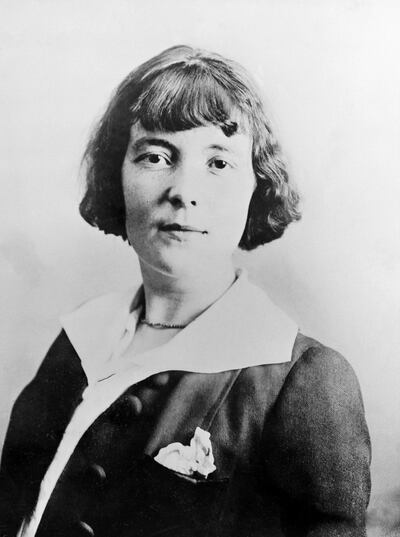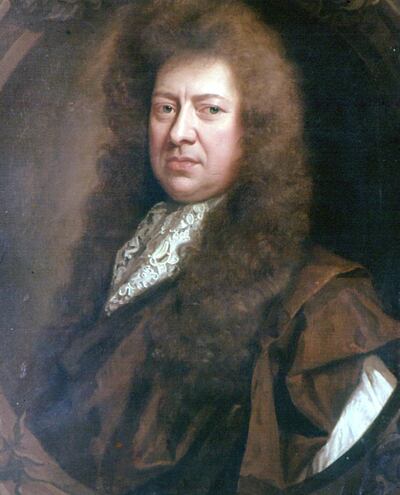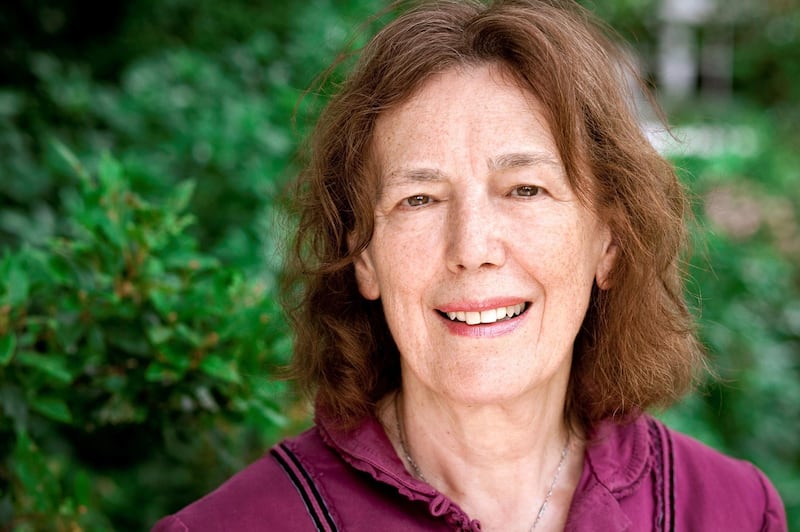In the early '80s, when Claire Tomalin was literary editor of The Sunday Times, she was taken out for lunch by the publisher André Deutsch and given food for thought. "You've had such an interesting life, Claire," he told her. "Why don't you write me a novel?"
Tomalin left the paper in 1986 when she was 53, but rather than write novels she turned to biographies. Although a new direction, it was not new experience.
In 1974 she published her first book, a life of the English writer and champion of women’s rights Mary Wollstonecraft. Tomalin enjoyed both the research and the writing, and the book was a success. And so walking away from journalism, she reimmersed herself in life-writing and never looked back.
Her celebrated books have made her Britain's supreme literary biographer. She has written on Katherine Mansfield, Jane Austen, Charles Dickens and Thomas Hardy, her "time-torn man". Two non-literary figures, both actresses, also proved captivating subjects: Dora Jordan, mistress of King William IV, and Nelly Ternan, Dickens's "invisible woman".

"I began as a feminist writer," Tomalin tells me when I sit down with her between events at the Cambridge Literary Festival last week. "My early books were very much about women who I thought had been misrepresented or not presented at all. Then I moved on to writing about men." Tomalin's best book is the life of Samuel Pepys. Reading closely and widely in and around his diary, and researching everything from political upheaval to the surgical removal of a bladder stone, she created a vivid picture of 17th-century London and a portrait of "an extraordinary man". Aspiring biographers: this is how it is done. "Pepys said that curiosity was his chief characteristic," Tomalin says. "Curiosity about the world and himself. Here was a very early example of a man who examined himself as a human being, a dramatic figure."
After devoting the second-half of her professional life to writing biographies of famous cultural figures, Tomalin did something unexpected this year: she turned the tables and wrote her own story.
A Life of My Own is an intimate and absorbing memoir filled with triumphs and tragedies. She relives her turbulent childhood and recreates her refuge at university; she guides us through an up-and-down marriage and a dynamic Fleet Street career before arriving at, and reflecting on, her true vocation as biographer.
Two chapters deal with colossal blows: in 1973 her husband Nick was killed by a Syrian missile while reporting in Israel; in 1980 her daughter Susanna, a brilliant Oxford student, committed suicide.
When I ask what is easier, biography or autobiography, Tomalin answers without hesitation. “Oh biography. I’m quite relieved to have written this book. My children were not in favour of my doing it. My daughter Emily said Tom [Tomalin’s son, born with spina bifida] won’t like what you’ve written about his birth. I worried about that but Tom loved what I had written. I think he saw that I presented him as a person.”
Indeed, Tomalin has a special talent for characterisation. Instead of bare-bones representations she fleshes out people, breathing new life into historical figures and making the living feel familiar, knowable.
However, on occasion her warts-and-all depictions have ruffled a few feathers. Dickens devotees objected to her writing about his 12-year relationship with Ternan (one Oxford don even accused her of peddling gossip). Sometimes she makes clear her disapproval of a subject’s wartier facets or episodes. “There were some mean and cruel things Pepys did which I do say in my book I find really awful, like trying to seduce one of his colleague’s daughters just for the hell of it.”

Figures of outright evil and the lives of tyrants, she leaves to others. “People who do Hitler and Stalin know they are doing a monster, and I can see the attraction of doing a monster. But I myself feel I’ve got to like the person I’m writing about. It would be a cold book if I didn’t.”
I remind her of the part in her memoir when she abandons her Mansfield biography for a time, admitting to not having found “a way of engaging with her”. Was the problem Mansfield’s life or art?
“Well I think she did write a handful of short stories which are great. The more I researched, the more I realised her life was interesting and here was an extraordinary story to tell. I made life hard for myself writing that book, but in the end I felt it was all right.”
Tomalin was asked to write the Mansfield biography. All her other subjects she chose herself. Ternan’s story, she says, “needed to be told”. Pepys “imposed himself on me through his diaries”. Often one book leads to another. “Jane Austen came along after Mary Wollstonecraft and Mrs Jordan. They were contemporaries, and I thought, well, I know the period, and they are all connected in minor ways… .”
But as she mentions in her book, anyone setting out to write about Austen must be aware they are “treading on ground that is both sacred and extremely well trodden”.
Was her approach to come at Austen from a different angle? “No,” she replies, “I didn’t think I had to offer a new perspective at all. I’d been reading Austen all my life, I’d read the biographies, and I just thought: I’m going to start again.”
By doing so she managed to explore new terrain and also dispel old myths. “People like [previous Austen biographer] Lord David Cecil had tried to present Austen as though her family were part of the aristocratic society, or gentry. But looking at who her Hampshire neighbours actually were, which I think nobody had done, and then looking at the fact that her mother and father couldn’t afford to bring up their children so they had to run an all-boys boarding school, and that they didn’t live in a house they owned so when her father left they were homeless – it seemed to me that there was so much there. Of course they went to balls where they met people from higher classes, but basically they had a tough time.”
Despite her best efforts, Tomalin discovered Austen was an elusive subject. “I found you cannot get so close to her. She stands at some remove. She kept a space of her own.”
Larger-than-life Dickens, on the other hand, was impossible to ignore. “He is always interesting and often surprising,” she claims.
“This very good man who set out to do good and did good and was exceptionally generous – taking an interest in people in prison, in prostitutes, in homeless children – he lived his life to be good and then suddenly he finds himself doing something bad. And he makes it worse because he doesn’t know how to be bad!”
Some critics complain that Hardy’s life wasn’t particularly eventful. Is this unfair? “Well I suppose the events in Hardy’s life were mostly the writing of the books. His struggle was literary: he wanted to destroy the doll of English fiction. And he did.
“The sorts of events that happen in writers’ lives tend to be intellectual events rather than physical events.”
Tomalin’s own life has been filled with both. When physical matters have hit her hard, intellectual pursuits have provided solace. Her mother told her at an early age that however unhappy you may be, you can escape into a book. “She was right.”
Books are everywhere in Tomalin’s memoir. Sometimes there have been too many: as a Booker Prize judge she whittled the long-list into a shortlist by reading a book a day and waking at 2am to read another in the night. Sometimes there haven’t been enough: at boarding school, she recalls she had to go to bed at six and was not allowed to read.
I hope that Tomalin has another book in her. She may be 84 but she is sharp as a tack and brims with enthusiasm. However, she feels that spending five years on another biography would be “unreasonable”. Instead, she may offer a compromise and write a book of essays about her “escapees” – people she wishes she had written about at length; those that got away.
This seems a suitable moment to ask if Tomalin has any regrets. “I wish I had got there sooner,” she says of biography-writing, “but on the other hand I’ve had an enormously varied professional life.” Then there is her personal life. “I think I made an awful mistake in marrying too young,” she admits. “But I can’t say I regret it because I have lovely children. Margaret Forster and Hunter Davies married the day after they finished at Oxford. I waited a year, which was quite discreet, wasn’t it?”
Like Pepys before her, Tomalin is fuelled by curiosity. On the first page of her memoir she explains how she hoped the process of examining her life might help her to understand herself better. Does she now have a stronger sense of who she is?
“I suppose I do a bit,” she says, smiling. “One of the things I learnt is that you think you go through life making individual personal decisions about everything you do.
“When I look back on my life I see I was carried on the tide.”
She laughs. “I was swept along.”
_________________
Read more:
[ Book review: A tale of the loneliness of the hunted in The Tiger and the Acrobat ]
[ Book review: Daniel Ellsberg discusses loose links in the US nuclear chain of command ]
[ Book review: Nicola Pugliese's Malacqua reflects the political unrest of the time ]
_________________





